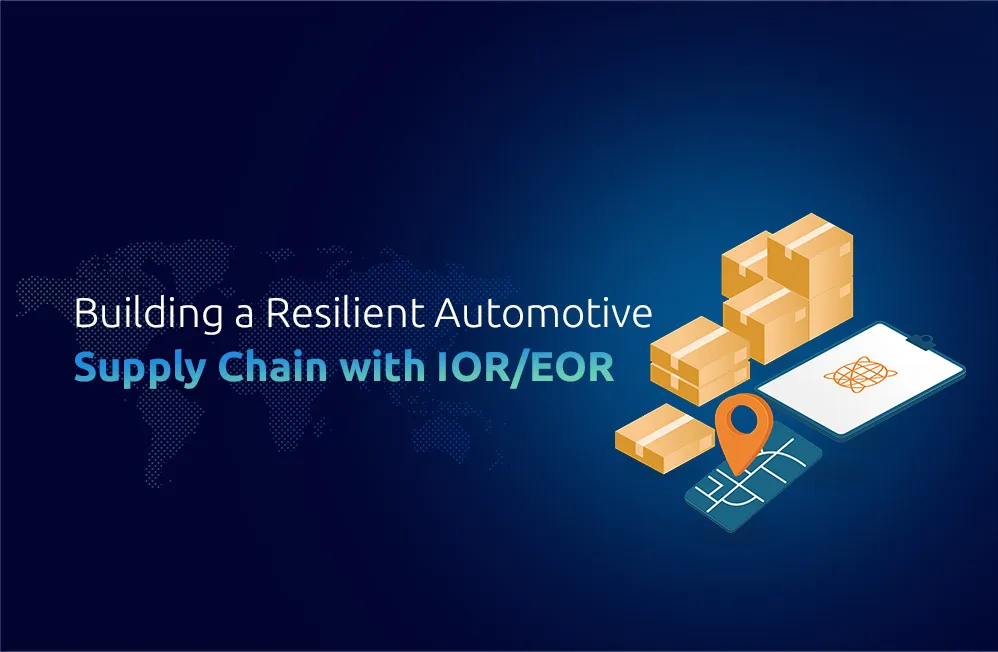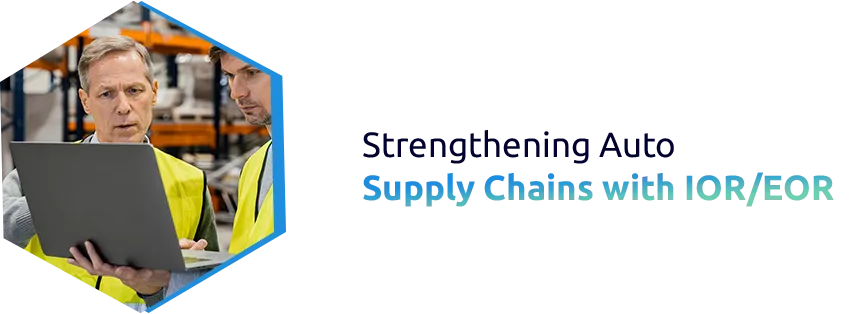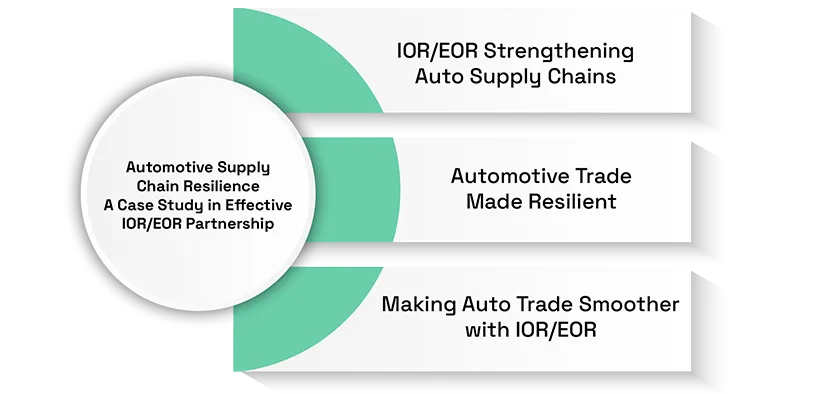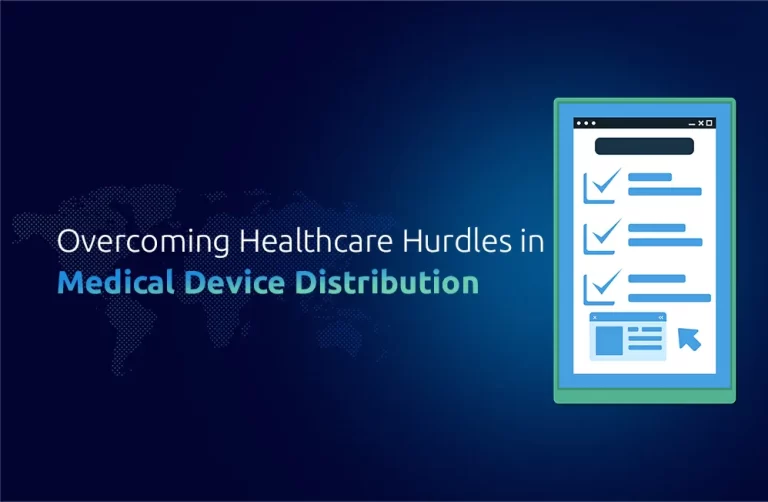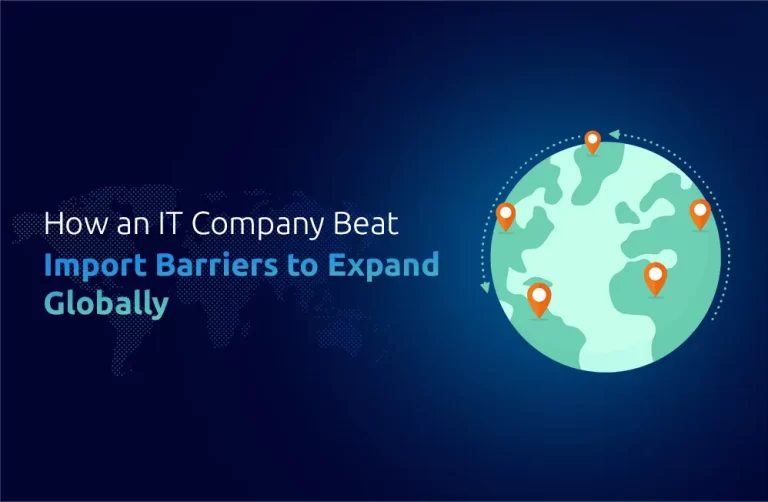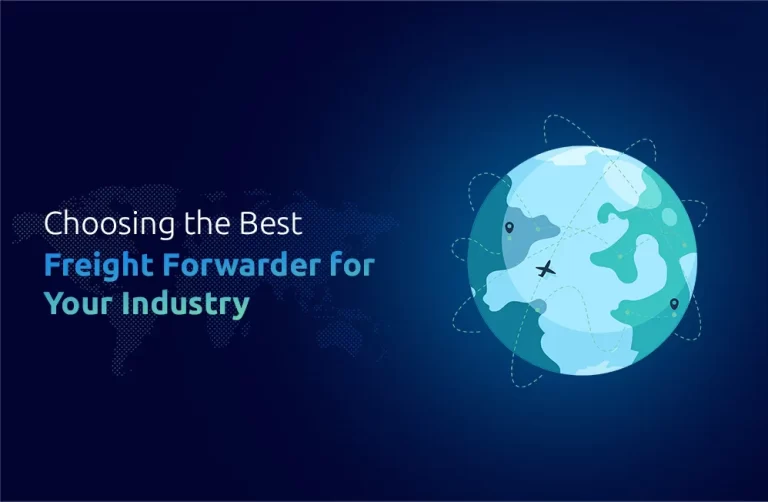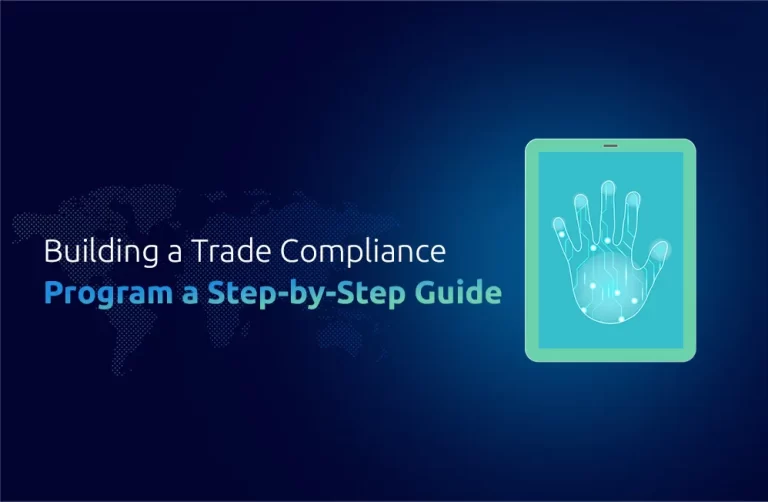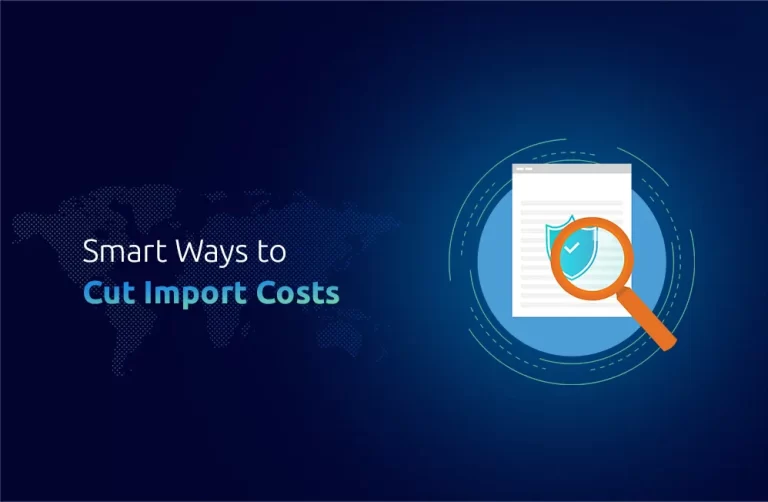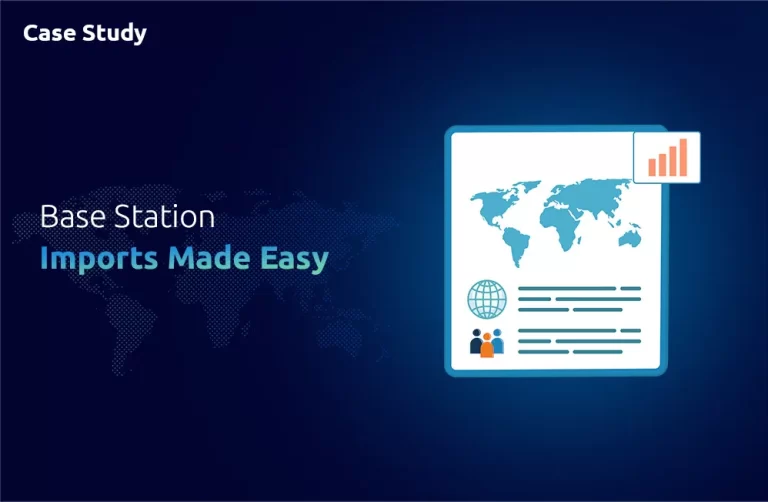Introduction to Automotive Supply Chain Resilience
The transportation of valuable equipment across the globe needs to be done accurately, with precise paperwork and diligent logistics management. Over the past few years, delivery difficulties, customs delays, and unpredictable geopolitics have stretched the strength of the most reliable supply chains. When demand for goods increases worldwide, it has become necessary for supply chains to be resilient. The supply chain needs to change, bounce back, and go on without affecting schedules or meeting regulations. The importer of record / IOR and exporter of record / EOR model are the main reasons this system is so reliable.
The Part of Importer of Record & Exporter of Record
The responsibilities of an IOR include preparing, submitting, and storing import documents, paying applicable taxes and duties, and ensuring local compliance. This role becomes essential in countries where the importer must be legal. An EOR takes over similar responsibilities when goods are shipped out, ensuring correct licensing, legal clearance, and regulatory alignment.
These roles eliminate the need for businesses to establish a legal presence in every destination country while still allowing full compliance with customs and trade laws. Effective IOR/EOR services help businesses enter new markets faster, lower compliance risk, and maintain efficient, reliable logistics flow.
Challenges & Solutions Faced by Automotive Supply Chains
Unpredictability defines modern supply chains. Sudden changes in import regulations, labour strikes, new trade tariffs, or incomplete documentation can bring shipments to a halt. Even a minor paperwork error can trigger extended customs holds or penalties. Risk management strategies have evolved to include redundancy in supplier networks, better inventory planning, and comprehensive visibility across all logistics operations.
By partnering with a dedicated IOR/EOR provider, businesses are no longer exposed to customs risks or documentation mishaps. These providers ensure that the correct Harmonized System (HS) codes are used, taxes are forecasted and paid on time, and paperwork is submitted digitally where available. The added benefit is clear: operational agility and confidence even in uncertain environments.
A Case Study: Partnership Methods That Delivered Impacts
A mid-sized enterprise faced recurring disruptions while shipping to Southeast Asia. Internal teams couldn’t keep up with dynamic customs policies and lacked the legal presence to process imports. Equipment is stuck at port warehouses for weeks, creating bottlenecks and increased warehousing fees.
The company brought in an IOR/EOR partner who immediately handled the documentation, aligned with local tax authorities, and managed regular audits. Shipment clearance times dropped by over 40%. Errors in export licenses and classifications were eliminated. The result was a consistently on-time supply chain that responded flexibly to required shifts.
The Impact of Tech & Innovation on Supply Chain Partnerships
Modern IOR/EOR providers have embraced digital transformation. Instead of relying on outdated spreadsheets, real-time dashboards offer a window into customs processing, shipment stages, and payment status. API integration directly links IOR/EOR workflows with internal ERP platforms, reducing administrative overhead and human error.
Technology also brings foresight. AI-powered compliance tools identify irregularities in documentation before submission. Automated alert systems track regulation changes in key regions, prompting action before disruptions arise. As innovation evolves, these digital tools will become vital to strategic supply chain planning.
Future Trends in Building Resilience Through IOR & EOR Partnerships
Governments are ramping up regulatory enforcement. New electronic clearance systems and stricter inspection protocols are already in motion in countries like India, where digital portals manage many aspects of import documentation. Businesses must adapt quickly to this shift by building resilient structures and prioritizing compliance without slowing shipments.
Strategic planning will now revolve around cross-functional collaboration. Logistics teams, finance units, and legal departments must align in real time. IOR/EOR partnerships will extend into these internal processes, helping companies design future-ready logistics systems that scale.
Conclusion
In a world where cross-border shipping has never been more regulated, resilience depends on foresight and expert execution. Supply chains don’t just need to move fast; they need to move right. We at One Union Solutions deliver seamless IOR/EOR services that help companies manage risk, stay compliant, and maintain uninterrupted logistics operations across multiple markets.
Did You Know?
As per the data released by India’s Ministry of Commerce & the National Trade Facilitation Committee, customs clearance time dropped by 20% in 2023 at air cargo facilities and seaports due to digitization. However, nearly 60% of delays still resulted from errors in documentation or the absence of a valid legal importer. Businesses working with licensed IOR/EOR entities saw clearance times reduced by 35% and storage costs drop by an average of 25%.
FAQs
- How do IOR/EOR services prevent shipment delays?
By ensuring that all documentation, taxes, and licensing requirements are fulfilled before the shipment arrives at customs, you can reduce hold times.
- What makes IOR/EOR crucial for global compliance?
They act as the legal authority for shipments, ensuring regulations are followed and penalties are avoided in origin and destination countries.
- Can IOR/EOR solutions be integrated with logistics systems?
Yes. Many providers now offer integration with ERP systems and digital dashboards for real-time tracking and document automation.
- How are risk and cost controlled through IOR/EOR partnerships?
IOR/EOR partners reduce the need for in-house legal teams and minimize penalties, warehousing fees, and compliance errors.
- What should businesses consider when selecting an IOR/EOR provider?
Experience with global regulations, real-time system integration, accountability, and legal licensing in all targeted regions.

